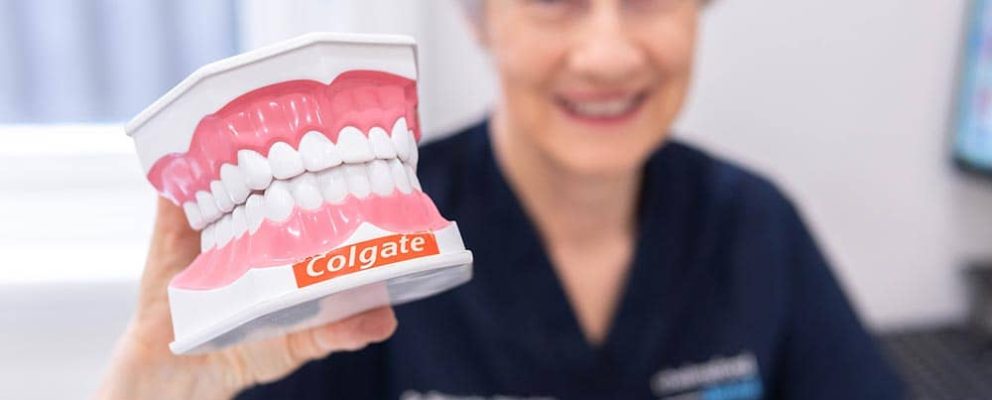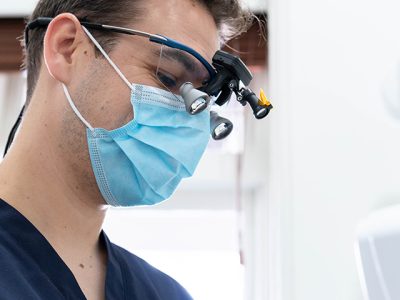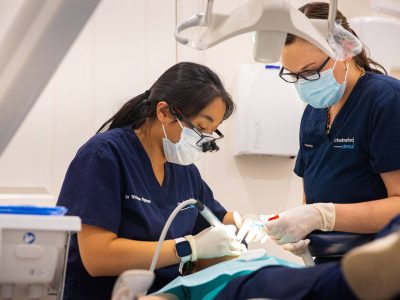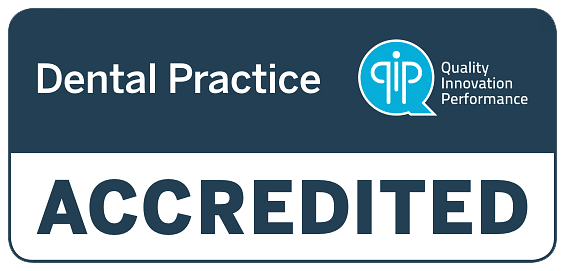For most people, that translates to a balanced diet with plenty of fruit and vegetables and the right amount of exercise. Healthy habits, combined with good dental hygiene also contribute to a happy and healthy smile.
However, some of the things you do every day might not be as healthy as you think. You might be surprised to learn how many of your everyday habits are damaging your smile.
Your Teeth: The Basics
Teeth are designed to bite, crush, grind and chew food. They are made of strong, sturdy material so that they can do their job for years.
Along with this, teeth also help us to communicate. Just say a few words and you’ll notice how your tongue presses against your teeth to create certain sounds.
Most people have between 28 and 32 teeth, including:
- Incisors
- Canines
- Premolars
- Molars
- Wisdom teeth
Although they are stronger than bone, they can be damaged or even destroyed through poor lifestyle habits.
What are teeth made of?
The outer layer of teeth is made of enamel, a densely packed layer of calcium phosphate and other mineral crystals. Enamel is the hardest substance in the human body. It has to be to withstand the rigours you put your teeth through every day.
Beneath the enamel is “dentine”. This dentine is hard but not quite as hard as enamel and comprises most of the structure of the tooth. It includes calcium, phosphate and hydroxyapatite crystals, much like enamel, but the crystals are smaller and less densely packed, which means that the dentin is softer and more porous than enamel.
The inner structure of the tooth is called the pulp. It is home to the nerve and blood vessels of the tooth.
If teeth are so strong, how can they be damaged?
When a bone is broken, the healing process begins almost immediately. The body forms a clot at the site of the break and sends healing cells to knit the broken ends together again. Although the structure of teeth is similar to that of bones, they do not heal when they are damaged.
That is because the bone is made of living tissue, but teeth are not. To keep your teeth strong and healthy, you need to be proactive with your dental hygiene regimen. With good care, you can keep your enamel in the best possible shape.
This means watching not just what you eat but also what you drink.
Alcohol and Your Smile
On average, Australian’s drink nearly three standard drinks a day. We use alcohol to unwind after work, to socialise, or to enjoy an evening out. There are well-publicised dangers to alcohol which is why you should always drink responsibly, but many Australian’s don’t know the damage they could do to their dental health as well.
- How does alcohol affect your teeth?Drinking large amounts of alcohol can lead to tooth decay, enamel erosion and stains. In moderation, alcohol is fine to enjoy, and there can even be benefits for your health. Red wine, in particular, can be good for your heart. According to experts, healthy adults can safely enjoy two standard drinks a day and no more than four drinks on any single occasion.The decay process begins when the bacteria that live naturally in your mouth begin to break down the sugar in the alcohol. This creates a highly acidic oral environment that is just right to begin to dissolve your tooth enamel, causing a cavity.
Once a cavity begins in the enamel, it can quickly spread into the dentine of the tooth. Drinking more alcohol will speed the process, increasing the growth of the bacteria. The decay will eventually reach the pulp of the tooth.
Once the decay reaches the pulp, you could develop an infection called a dental abscess. This can be an extremely painful condition that requires a specialised treatment called root canal therapy or even a dental extraction.
- I only drink once in a while. Am I at risk?Heavy drinkers are at the greatest risk of suffering dental problems. Heavy drinkers tend to have poor diets, and they often suffer from dry mouth. This combination increases their risk of dental problems, especially when coupled with poor dental hygiene.Occasional or moderate drinkers can combat the risks associated with alcohol with good dental hygiene. Brush and floss as recommended, and visit your dentist regularly for cleanings and evaluations.
Alcohol and Smile Aesthetics
Alcohol can also affect the way your smile looks. Alcohol has chromogens, colour-depositing substances. Chromogens can attach to the enamel on your teeth, which can lead to discolouration.
- Do chromogens affect your dental health?Stains will not cause dental disease, but they can affect your smile confidence. When teeth are grey, yellow, brown or otherwise discoloured, people can become less comfortable sharing their smiles.
Alcohol’s staining effects can be heightened by the acids it contains naturally. These acids weaken the enamel on your teeth, allowing the stains to penetrate more easily. For this reason, you might want to avoid red wines and darker or brightly coloured drinks.
The acid can also trigger dental sensitivity. The acids break down dental enamel, which exposes the sensitive channels in the dentine. This can make your teeth more vulnerable to decay and can also create sensitivity. When you eat or drink something hot or cold, the channels transmit sensations to the nerve in the centre of the tooth. The nerve is hyperstimulated when the insulating enamel is worn away, and you might notice a painful zing or uncomfortable ache in your teeth.
- Are there any other negative effects to alcohol?Unfortunately, there are. Alcohol is notorious for causing dehydration. In fact, dehydration is partly behind that morning-after hangover sensation you get after overindulging on a night out. Dehydration can cause dry mouth.
Saliva is the body’s natural cleaner for the mouth. It helps rinse away bacteria, plaque and debris from the teeth. It also contains minerals to help rebuild the enamel. When your mouth becomes too dry, your teeth become more vulnerable to decay, gum disease and other dental problems.
- Is there any healthy alcohol?Some alcoholic drinks are known to have healthy effects on our bodies. However, no alcohol is good for us when used excessively.
If you do choose to indulge, there are some healthier alternatives, including:
- Light beer – An alternative to traditional beer, light beer has higher water content. This reduces its acidity and its colour, which can minimise the effect it has on your teeth.
- Gin and tonic – These clear liquids will not stain your teeth, and the acidity is low, which means the drink is unlikely to damage your enamel. Adding a wedge of citrus will increase its acidity and its adverse effects.
- Brut champagne – Doux champagne is high in sugar while brut champagne is dry and far less damaging on your teeth.
- White wine – The intense colour of red wine makes it a poor choice for your smile, but white wine is unlikely to stain teeth as much. Even better, it is drier than red wine, which makes it less damaging, too.
Soda and Your Smile
Australians love their soft drinks, purchasing about one sugar-sweetened beverage a day in 2014. In 2012, Australians were purchasing more than 1 billion litres of sugar-sweetened drinks. We even ranked among the top 10 consumers of soft drinks per capita!
As with alcohol, a cold soda now and then is not necessarily going to do serious damage to your teeth. The problem occurs when you overindulge. Soda not only has no benefits for your health or smile, but it also does serious damage as soon as you take that first sip.
Soda has no nutritional value but is extremely high in sugar, filling your body with empty calories. It has been linked to strokes, heart attacks, dementia, type 2 diabetes, metabolic syndrome and obesity.
It also increases the risk of tooth decay. The large volume of acid and sugar in soda combine with the bacteria that already live in your mouth. This results in an acid that aggressively attacks your teeth for up to 20 minutes and continues as long as you keep drinking that soda. This is why drinking too many sodas or drinking soda too often can lead to cavities.
- Is it better to have diet soda instead?Sugar-free sodas might not have the sugar that regular soda has, but that does not necessarily make them a safe choice. Diet sodas are just as high in acid as their sugary counterparts, including:
- Tartaric acid
- Citric acid
- Phosphoric acid
These are the same acids that are found in fruit juices, and they give soda its characteristic zing. Unfortunately, they also cause significant enamel erosion.
- So I should not have soda at all?If possible, it is best to avoid soda entirely. If you want a soda for an occasional treat, you can take steps to minimise the risks to your teeth and health, including:
- Drinking sodas that are low in sugars, artificial sweeteners and other additives
- Using a straw to reduce contact between your teeth and the liquid
- Rinsing your mouth with water when you are done drinking
Do not brush your teeth immediately after drinking a soda. While it might seem like a good idea to clean the sugar and acids off your teeth, brushing while the enamel is softened can do more harm than good. Wait about half an hour before brushing, and use a toothpaste that is fortified with calcium, fluoride and phosphate to rebuild your teeth.
Coffee and Your Smile
Many Australians enjoy a coffee on occasion, and as with many things, coffee is not bad in moderation. In fact, coffee has some health benefits. The primary problem with coffee is that it can be extremely staining. The dark colour of coffee can quickly discolour your smile. Even a cup or two of joe a day can leave your teeth looking brown or yellow rather than white.
- So is coffee bad for my teeth?Yes and no. When enjoyed in moderation, coffee can be good for your teeth. According to a study, unsweetened coffee can help prevent plaque build-up and cavities.
Still, drinking anything other than black coffee might not be so good for your teeth. Once you start adding things like flavoured syrups, sugar substitutes, sugar, cream and other additives to your coffee, the risks increase. Keep the risks low by drinking your coffee black or just adding milk, which can increase the calcium content. Calcium, of course, can build stronger enamel.
- How can I avoid stains from coffee?The stains from coffee come from tannins, the same substance that causes stains from red wine and tea. The more coffee that you drink, the more tannins will stick to your teeth. Giving up coffee is the only way to completely avoid coffee-related staining.
However, lots of people are not quite ready to kick their coffee habits, and if you are one of them, take heart. There are a few other ways to reduce the risk of stains, including:
- Drinking your coffee with a high-fibre meal or snack
- Drinking water after your coffee to dilute and rinse away the acid
- Avoiding adding sugar, cream or other additives, which can increase the acidity and damage that coffee can cause
Try not to brush your teeth right after drinking coffee. Just like with soda, the acids in coffee can soften your enamel slightly, and brushing too soon can cause microscopic scratches and damage.
The Healthiest Beverage for Your Teeth
After reading about alcohol, soda and coffee, you probably are wondering what kind of drink you can enjoy safely. Water might not sound like the most exciting drink, but it is one of the healthiest you can enjoy.</p.
Water does not damage your teeth. Water is not just safe for your body but essential for healthy function. It has several important jobs for your mouth, including:
- Keeping your mouth hydrated
- Helping you swallow
- Producing saliva
- Flushing oral bacteria and debris
- Remineralising teeth
Public water supplies in Australia are fluoridated, which offers added protection against oral bacteria and tooth decay. Drinking plenty of water every day and after staining or potentially damaging drinks can help you keep your teeth strong and healthy.
What if I have Braces?
Orthodontic treatment can leave your teeth more vulnerable to decay. You need to be especially careful about your drinks and diet during treatment. If you are wearing conventional braces, skip the sugary or sweet drinks altogether and limit your alcohol intake. If you are wearing clear aligners, remove them when you drink and clean your teeth thoroughly before replacing your aligners.
Make sure to drink plenty of water during treatment. Water is the best way to rehydrate and will help you keep your teeth strong and healthy.
Learn more about healthy dental habits here, or contact our office to schedule your next appointment.








